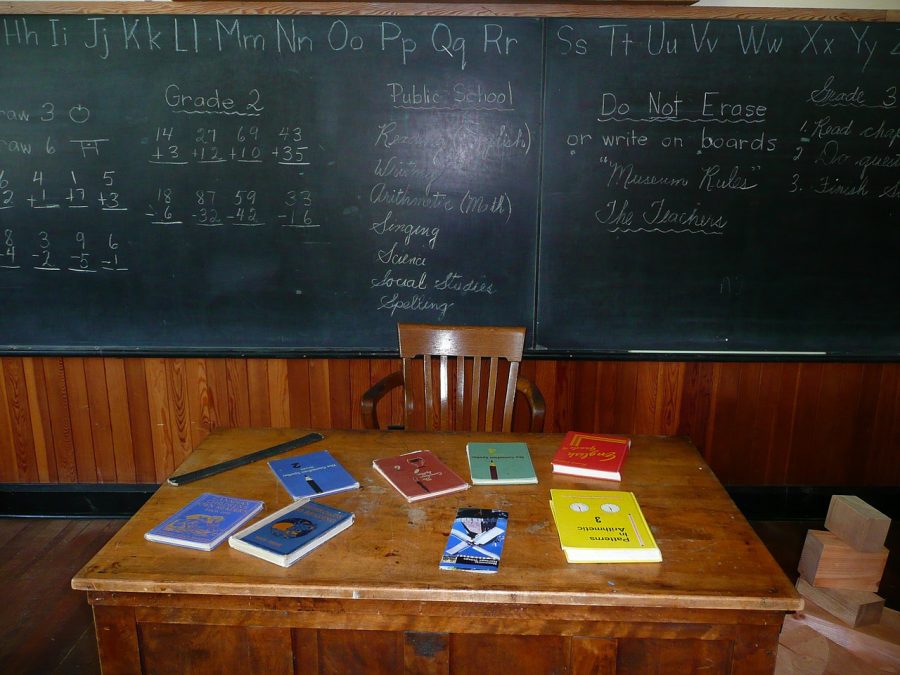It is important to note that any non-U.S. citizen who wishes to teach in the United States must first obtain a visa from the U.S. embassy in their home country to be eligible to teach in the United States. In addition to visa requirements, foreign-educated teachers who would like to teach in U.S. public schools (Kindergarten through twelfth-grade levels) must also be certified by the state where they would like to work. While each state has its own individual certification requirements for foreign-educated teachers, most states have in common certain requirements:
In most U.S. states, foreign-educated teachers seeking certification must meet the following requirements:
- Completion of the foreign equivalent of a U.S. undergraduate degree
- Completion of a teacher preparation program that meets the requirements of the state where the individual would like to teach
- Completion of a certain number of university-level credit hours in education and in the subject area they wish to teach
Additional Requirements:
- Most states will also require foreign-educated teachers to submit a credential evaluation report with their teaching application. This report explains an applicant’s foreign credentials to the state board of education and is usually only accepted if it has been prepared by credential evaluators designated by the state.
- Prospective teachers who were educated outside the United States may be required to take an exam or a series of exams to demonstrate their reading, writing, and speaking proficiency in the English language (if it is not their native language).
- Some states also require passing scores on state-specific certification tests (for more information on Teacher Licensure and Certification tests, visit the Educational Testing Service site).
- Foreign-educated teachers who meet all of the state’s certification requirements will also need to complete an application for certification and submit a processing fee (normally around USD 100).
* If foreign-educated teachers fail to meet a state’s minimum certification requirements, they may be able to complete additional coursework to meet state standards.
Possible Options for Teachers without Certification
- Emergency Certifications – In some states, foreign-educated teachers can get a teaching job without being certified under the state’s emergency certification provisions. Because of critical teacher shortages, some states extend temporary and emergency certifications that bypass state licensing requirements. These temporary certifications are usually given to prospective teachers in high-need subject areas like math, science, bilingual education, and special education. Opportunities to teach under these emergency provisions are fairly common in urban locations, but such emergency teaching certification is only temporary. The teacher still must work towards and eventually obtain official state certification.
- Teaching in Private Schools – While teachers in U.S. public schools must meet teacher certification requirements for their particular state, private schools in any state are allowed to hire non-certified teachers. Although this practice may be a possible route for foreign-educated teachers to find employment, it is important to know that private school teachers are usually paid less than teachers in the public school system. Private school teachers, however, tend to have more control over their lesson plans and typically teach smaller classes.
Assistance for Foreign Teachers
The following organizations and Web sites may be able to help qualified foreign teachers with the process of coming to the United States and becoming certified as a teacher (these links are provided for information only and are not endorsed by LatPro):
Eligibility Requirements and Certification Procedures by State:
The resources below provide more information about the teacher certification process for each individual state. Be sure to review the specific requirements for the state where you wish to work.
- ALABAMA
- ALASKA
- ARIZONA
- ARKANSAS
- CALIFORNIA
- COLORADO
- CONNECTICUT
- DELAWARE
- DISTRICT OF COLUMBIA – pdf file
- FLORIDA
- GEORGIA
- HAWAII
- IDAHO
- ILLINOIS
- INDIANA
- IOWA
- KANSAS
- KENTUCKY
- LOUISIANA
- MAINE
- MARYLAND
- MASSACHUSETTS
- MICHIGAN
- MINNESOTA
- MISSISSIPPI
- MISSOURI– .pdf file
- MONTANA
- NEBRASKA
- NEVADA
- NEW HAMPSHIRE
- NEW JERSEY
- NEW MEXICO
- NEW YORK
- NORTH CAROLINA
- NORTH DAKOTA
- OHIO
- OKLAHOMA
- OREGON
- PENNSYLVANIA
- RHODE ISLAND
- SOUTH CAROLINA
- SOUTH DAKOTA
- TENNESSEE
- TEXAS
- UTAH
- VERMONT
- VIRGINIA
- WASHINGTON
- WEST VIRGINIA
- WISCONSIN
- WYOMING
Sources:
- Fulbright Commission’s US Educational Advisory Service (EAS)
- AllEducationSchools.com
- U.S. Department of Education

